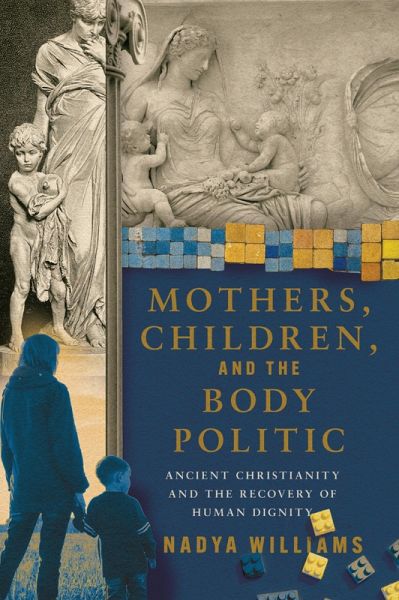
Mothers, Children, and the Body Politic (eBook, ePUB)
Ancient Christianity and the Recovery of Human Dignity
Versandkostenfrei!
Sofort per Download lieferbar
23,20 €
inkl. MwSt.
Weitere Ausgaben:

PAYBACK Punkte
0 °P sammeln!
How we talk about human life matters. In western post-Christian society, humans are thought of less like precious image bearers and more like commodities. The canary in the coal mine of this ideological shift is often women and children, which manifests itself in the seemingly built-in disdain towards motherhood and children for their lack of production of economically valuable goods. However, the risk of this utilitarian approach to human life is not just outside the church, but within those spaces as well. Indeed, the commodification of human life within the contemporary body politic is so d...
How we talk about human life matters. In western post-Christian society, humans are thought of less like precious image bearers and more like commodities. The canary in the coal mine of this ideological shift is often women and children, which manifests itself in the seemingly built-in disdain towards motherhood and children for their lack of production of economically valuable goods. However, the risk of this utilitarian approach to human life is not just outside the church, but within those spaces as well. Indeed, the commodification of human life within the contemporary body politic is so deeply embedded within the systems, even the church has lost touch with some of the ways it inherently devalues the lives of women and children. Classics scholar Nadya Williams draws from voices both ancient and modern to illuminate how Christians can value human life amidst an empire that seeks to dehumanize that which is most precious. Bringing insights from the beliefs and practices of the early church in Greco-Roman context about motherhood, raising children, and human life, Williams suggests there is a way to recapture a vision that affirms the imago Dei in each person over and above our economic contribution to society.
Dieser Download kann aus rechtlichen Gründen nur mit Rechnungsadresse in A, B, BG, CY, CZ, D, DK, EW, E, FIN, F, GR, H, IRL, I, LT, L, LR, M, NL, PL, P, R, S, SLO, SK ausgeliefert werden.



